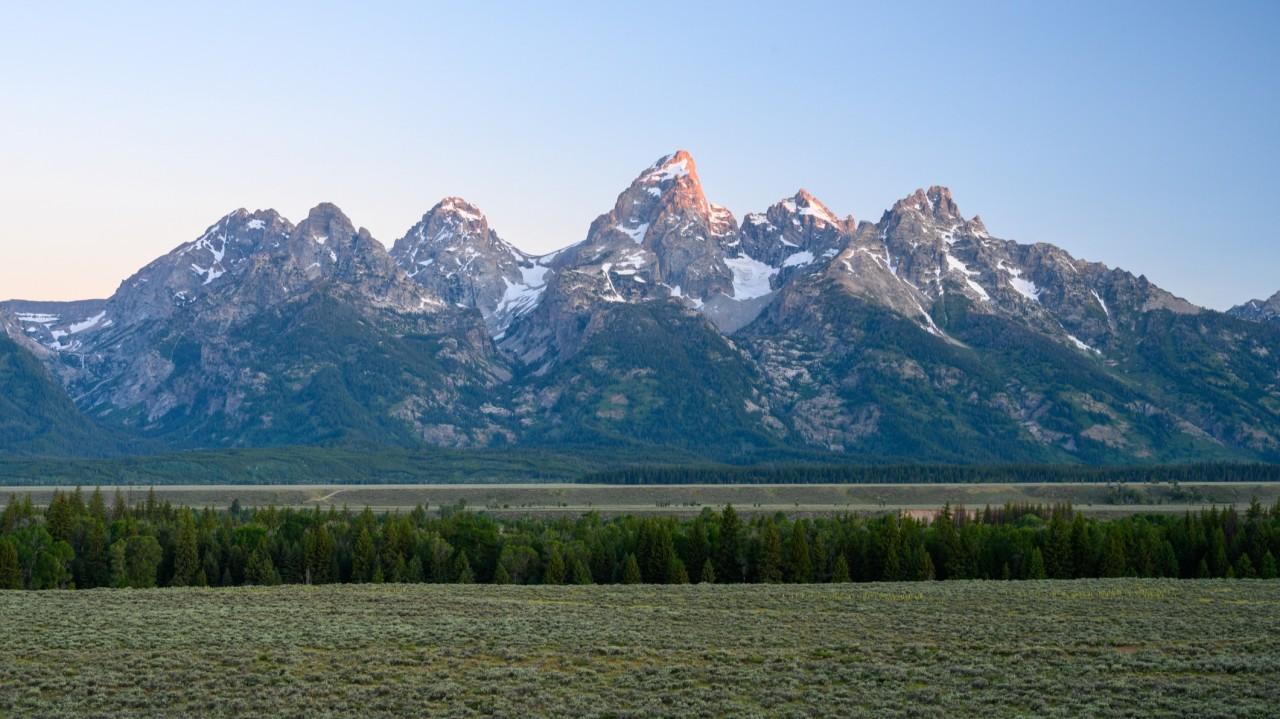“Guys, look at these videos we took of sunspots on the sun!!!” texted Liv to our family group chat, unleashing her inner nerd. She’s a space science major, which is part of the Physics and Nuclear Engineering Department (PANE for short). I asked if sunspots are solid or just so much cooler than the surrounding plasma that they appear dark? It’s one of an infinite number of things that I know nothing about. Which makes the world endlessly interesting (and filled with opportunity). “Cooler, but they also have opposite polarity relative to everything around them,” she answered. Which confirmed just how profoundly shallow my understanding of nearly everything is. And I went back to digging into things that might help me make money.
Overall: “There are no risk-free paths now,” said Jay Powell. “It is quite a difficult situation for policymakers.” Of course, he’s right. Every important job should be hard. Risky too. And adjusting interest rates by 25-one-hundredths of one percent every so often is no easy task. Just ask any governor. Which, presumably, is why the Federal Reserve employs 25,000 full-time economists and support staff to change that light bulb. But naturally, that’s not the only thing the Fed does. In its attempt to meet an internally inconsistent dual mandate (maximum employment and stable prices) the Fed somehow manages to consistently fuel speculative bubbles. Which inevitably burst. And to rescue the economy from these recurring crises of its own creation, the Fed’s 25,000 economists carry the Chair round and round in circles until he or she replaces the light bulb. At least that’s how it used to work in the good old days, back before the buttons. Now the Fed can create money by pressing Ctrl + P. And it can later destroy money as easily as pressing Shift + Delete, although it rarely does, and even then, only in limited quantities. I make it all sound so simple, because it is. Some folks consider the whole system to be an outrage and opt out by buying gold (bitcoin too). Hard to blame them. The yellow metal has gained 1,190% since the turn of the century - back during Greenspan’s dotcom bubble - while the S&P 500 total return index rose +600% in that time (Nasdaq 100 is +555%). The Consumer Price Index is +92% over these past 25 years, which means today’s dollar is worth roughly half of what it was back then. It’s a rather stark indictment of the system, when an inert metal outperforms the 500 biggest public companies in the best performing major economy in the world over a quarter century. But moaning doesn’t tend to make you much money. Better to study history, see the world clearly, play the hand you’re dealt, and be unafraid to take risk.
Week-in-Review: Mon: US empire mfg -8.7 (5.0e). China ret sales 3.4% (3.8%e). China IP 5.2% (5.6%e). Trump calls for ending quarterly earnings reports. China raised trade tensions by announcing Nvidia had violated anti-monopoly laws in 2020 acquisition of Mellanox. Stephen Miran to be confirmed by Senate, paving the way for him to join the FOMC meeting. S&P +0.5%. Tue: US IP MoM 0.1% (-0.1%e), US Ret Sales Advance MoM 0.6% (0.2%). Canada CPI 1.9% (2.0%e). UK ILO unemp 4.7% as exp. TikTok buyers to include Oracle, Silver Lake, and Andreessen. S&P -0.1%. Wed: US Rate decision upper bound 4.25% as exp, lower bound 4.00% as exp. US housing starts 1307k (1365k e). Canada Rate decision 2.5% as exp. Eurozone CPI 2.0% (2.1%e), Core 2.3% as exp. UK CPI 3.8% as exp, Core 3.6% as exp. Fed cuts rates by quarter point, with only Miran voting against (11-1) in favor of a larger cut; Powell points to signs of weakness in the labor market. Disney’s ABC network pulls “Kimmel Live” over host’s Charlie Kirk remarks. S&P -0.1%. Thu: US init jobless claims 231k (240k e), cont claims 1920k (1950k e). BOE rate unchanged 4.00% as exp. BOJ target rate unchanged 0.50% as exp, with plans to unwind its ETF stockpile. Free speech debates begin as Trump considers revoking broadcasting licenses. Ticketmaster, Live Nation sued by FTC over ticket resales. S&P +0.5%. Fri: Trump and Xi Jinping call to finalize TikTok deal, with plans to meet at upcoming APEC summit. Trump to add new $100k fee for H-1B visas. CDC panel votes to end universal covid vaccine recommendation. Anna Gomez states the FCC doesn’t have the authority or ability to revoke broadcast licenses over content. S&P +0.5%.
Weekly Close: S&P 500 +1.2% and VIX +0.69 at +15.45. Nikkei +0.6%, Shanghai -1.3%, Euro Stoxx -0.1%, Bovespa +2.5%, MSCI World +1.0%, MSCI Emerging +1.1%, Bitcoin -1.1%, and Ethereum -3.9%. USD rose +1.3% vs Indonesia, +1.0% vs Sweden, +0.8% vs Australia, +0.6% vs Sterling, +0.2% vs Yen, +0.1% vs Russia, and +0.1% vs Turkey. USD fell -0.6% vs Brazil, -0.4% vs Canada, -0.3% vs South Africa, -0.2% vs Chile, -0.2% vs Mexico, -0.2% vs India, -0.1% vs Euro, and -0.1% vs China. Gold +0.5%, Silver +0.3%, Oil -0.0%, Copper -0.5%, Iron Ore +2.2%, Corn -1.4%. 10yr Inflation Breakevens (EU flat at 1.74%, US +2bps at 2.39%, JP +2bps at 1.59%, and UK flat at 3.11%). 2yr Notes +2bps at 3.57% and 10yr Notes +6bps at 4.13%.
2025 Year-to-Date Equity Index Returns: Greece +56.9% priced in US dollars (+38.2% priced in euros), Czech Republic +52.7% priced in US dollars (+30.3% priced in koruna), Colombia +52.6% in US dollars (+34.7% in pesos), Korea +51.4% in dollars (+43.6% in won), Hungary +50.3% (+26.2%), Poland +50.2% (+32.4%), Spain +49.5% (+31.6%), Austria +42.9% (+26.4%), South Africa +42.8% (+31%), Brazil +40.8% (+21.3%), Mexico +40.1% (+23.6%), Chile +40% (+34.2%), Italy +40% (+23.8%), Portugal +38.7% (+22.1%), Israel +38.5% (+27%), Norway +34.6% (+17.5%), Germany +34.3% (+18.7%), HK +32.2% (+32.3%), Finland +31.2% (+16.1%), Ireland +30.1% (+14.5%), Euro Stoxx 50 +26.6% (+11.5%), Vietnam +26.5% (+30.9%), Canada +25.7% (+20.4%), Belgium +25.4% (+10.4%), Sweden +24.9% (+6.6%), UK +21.5% (+12.8%), Singapore +20.9% (+13.6%), France +20.8% (+6.4%), Taiwan +20.6% (+11%), Netherlands +20.2% (+5.8%), Japan +20% (+12.9%), Switzerland +18.9% (+4.4%), NASDAQ +17.2%, China +16.9% (+14%), MSCI World +15.4% in dollars, Australia +14.7% (+7.5%), S&P 500 +13.3%, Indonesia +10.6% (+13.7%), Russell +9.8%, UAE +7.5% (+7.5%), New Zealand +5.7% (+0.9%), India +4.1% (+7.1%), Malaysia +3.5% (-2.7%), Thailand -0.8% (-7.7%), Turkey -1.8% (+14.9%), Philippines -2.6% (-4%), Saudi Arabia -10.3% (-10.4%), Denmark -13% (-23%), Argentina -53.5% (-33.5%).
TL;DR: When Coinbase acquired One River Digital nearly three years ago, I had to learn a new language. Pretty much every internal memo I received started with TL;DR which meant nothing to me. I would’ve asked ChatGPT but it didn’t yet exist. Google said it meant “too long; didn’t read”, which also made little sense. I guess it’s some kind of slang that precedes a short paragraph that summarizes a longer article you probably won’t read. I had to learn all sorts of other new things at Coinbase, some annoying, others eye-opening, fascinating, exhilarating.
TL;DR II: If you think you can make a lot of money without learning all sorts of new and perplexing things, here’s a helpful TL;DR: Think again. So, here’s an example of the kind of TL;DR that comes across my feed and gets me super excited. This from the Coinbase blog on Sept 16th. TL;DR: Agents can already talk to each other. And now, with x402 within Google’s new AP2, they can pay each other too. Stablecoins make this possible at the speed of code, unlocking micropayments and new models of automation that legacy rails simply can’t support.
TL;DR III: 25-year-old Coinbase engineers with IQ’s one order of magnitude higher than mine read that TL;DR and read no further. I need to dig deeper [read here]. I ask Grok to teach me all about the meaning of x402, its origin, and Google’s AP2. Each question leads to another. Eventually I wrap my head around it. So, here’s my TL;DR: Coinbase, Google and numerous others have teamed up to build payment rails that allow Autonomous AI Agents (Agents) to instantly transact at vast scale, without the need for banks, using stablecoins on blockchain rails.
TL;DR IV: It doesn’t take a wild imagination to picture a world where AI Agents are acting on our behalf in ways that simplify our daily lives, and make the economy far more productive, efficient, prosperous. The scale of what is coming is far beyond the ability of banks and the incumbent payment infrastructure to handle. When I entered crypto 5yrs ago, blockchain infrastructure wouldn’t have been able to handle what is coming either. But if you squinted, you could see speeds rising, scale expanding, costs falling. That’s what an opportunity looks like.
TL;DR V: From the “didn’t read” body of the blogpost, this caught my eye: When Base launched, our priority was clear: To build a secure, low-cost, developer-friendly chain and ecosystem. This year, we’ve achieved our north star of sub-second, sub-cent transactions, and we’ve expanded beyond a chain into an open stack that makes it simple for anyone to build, trade, and earn onchain. Here’s my TL;DR: Blockchain transaction speeds (using Ethereum as the L1 and Base as the L2) have surged, costs collapsed. Expect valuable use cases to explode.
TL;DR VI: It may not have been obvious 5yrs ago. But at this stage, with the convergence of regulatory clarity for dollar stablecoin (with more to come), scalable blockchain technology, and Autonomous AI Agents, it should be apparent that global financial infrastructure is about to undergo a once in a generation upgrade. The opportunities to build businesses and invest in the companies and tokens that will profit from this build-out should be enormous. This is the hand that we’ve been dealt. Learn the new languages required, ask a million questions, and take risk.
Anecdote: I’ve spent my whole career taking risk. Which means I’ve thought about it from every angle imaginable. And I have a pretty good imagination. It also means I’ve suffered some soul-searching losses and enjoyed the windfalls that come to those who refuse to give up. One risk-management lesson I’ve learned above all others is that nothing good ever happens to dead people. So, the most important thing when taking risks is to make sure you don’t die. Literally and metaphorically, in mountaineering and markets. Live to climb another day. That’s probably why my team has built investment strategies and businesses that tend to perform well in recessions. Anyhow, risk takers have fueled humanity’s ascent from sticks and stones to the Space Station. So, when I think about what society needs, it is more risk-taking. Not the subsidized and unproductive forms of speculation, like luxury home-buying, which our politicians boost in senseless ways. I’m talking about business building. Invention. Innovation. Zero-to-One. Making something out of nothing. That’s the sort of risk-taking that leads to rising productivity and prosperity, which inevitably spread across society. And this leads me to interest rates, which should be set sufficiently low so that investors who take no risk of repayment receive a negative real return (an interest rate well below the inflation rate). It makes no sense to allow investors to buy risk-free government bonds that pay fat coupons funded by large budget deficits that will saddle our children with crushing debt. Capital owners should take real risks to earn a positive return. Society would be richer and fairer for it. This administration appears to be in the process of attempting such an agenda. Some will furiously call that financial repression. I say bring it on. That’s the hand we’re being dealt. There are many ways to profit from the opportunities ahead. And if financial repression forces investors to take more real risks, it may even lead to the kind of progress and productivity that will make the S&P 500 a much better investment than gold over the next 25 years.
Good luck out there,
Eric Peters
Chief Investment Officer
One River Asset Management
Disclaimer: All characters and events contained herein are entirely fictional. Even those things that appear based on real people and actual events are products of the author’s imagination. Any similarity is merely coincidental. The numbers are unreliable. The statistics too. Consequently, this message does not contain any investment recommendation, advice, or solicitation of any sort for any product, fund or service. The views expressed are strictly those of the author, even if often times they are not actually views held by the author, or directly contradict those views genuinely held by the author. And the views may certainly differ from those of any firm or person that the author may advise, converse with, or otherwise be associated with. Lastly, any inappropriate language, innuendo or dark humor contained herein is not specifically intended to offend the reader. And besides, nothing could possibly be more offensive than the real-life actions of the inept policy makers, corrupt elected leaders and short, paranoid dictators who infest our little planet. Yet we suffer their indignities every day. Oh yeah, past performance is not indicative of future returns.





